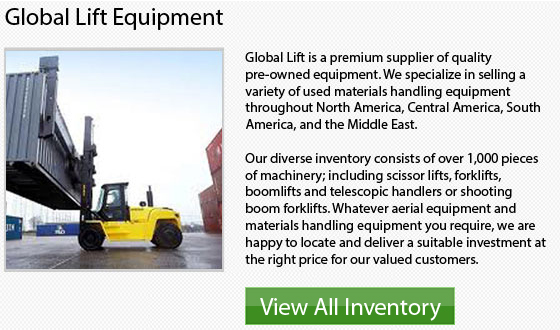
For businesses which raise and move heavy materials and goods on a regular basis, there is probably no more effective or valuable equipment as the forklift. Forklifts are a common site in dockyards, manufacturing plants, lumber yards, distribution depots, warehouses and shipping and receiving, agriculture and other work places that need to deal with loads ranging from 3000 to 30,000 plus lbs.
The forklift is used most often to keep the flow of operations working as efficiently and smoothly as possible. Though lift trucks are a large investment, the amount of man hours they could save and the injuries they reduce from heavy lifting could make the purchase pay for itself eventually.
There are many different units and manufacturers of lift trucks on the market. Various models are designed to accomplish various jobs. In order to make certain that you don't purchase more than you need or the wrong kind of machinery, it is really important to assess the needs of your business and compare to the different models on the market. Speaking with a authorized forklift distributor is a good idea and so is doing your own research on the World Wide Web.
When looking at lift trucks by fuel type, the following kinds are available:
Electric: The electric forklift is powered by lead-acid based rechargeable batteries. These heavy and large batteries can run a machine for more than 5 or 6 straight hours. Electric units are great for indoor applications due to their lack of emissions. They are a common alternative for warehouses and retail spaces as they provide a relatively low cost per hour of operation and put zero emissions into the air where people are working.
Internal Combustion: Internal combustion forklifts work with a variety of fuels. Several models take CNG or compressed natural gas, others take diesel, liquid propane or LP or gasoline. When compared to electric forklifts, the internal combustion or IC units could carry heavier loads, accelerate faster and are easier to refuel. These models are usually more pricey to use compared to their electric counterparts.
Fuel Cell: Hydrogen fuel cell forklifts are the latest in forklift technology. These units provide the zero emissions and quietness of electric lift trucks but provide the fast refueling capability of an internal combustion model.
Nissan's outdoor units would offer synchronized steering. This particular feature returns the wheel knob to the original position automatically after completing a turn. Equipped with solid pneumatic tires to offer a comfortable ride both outdoors and indoors, these tires are more resistant to both damage and wear.